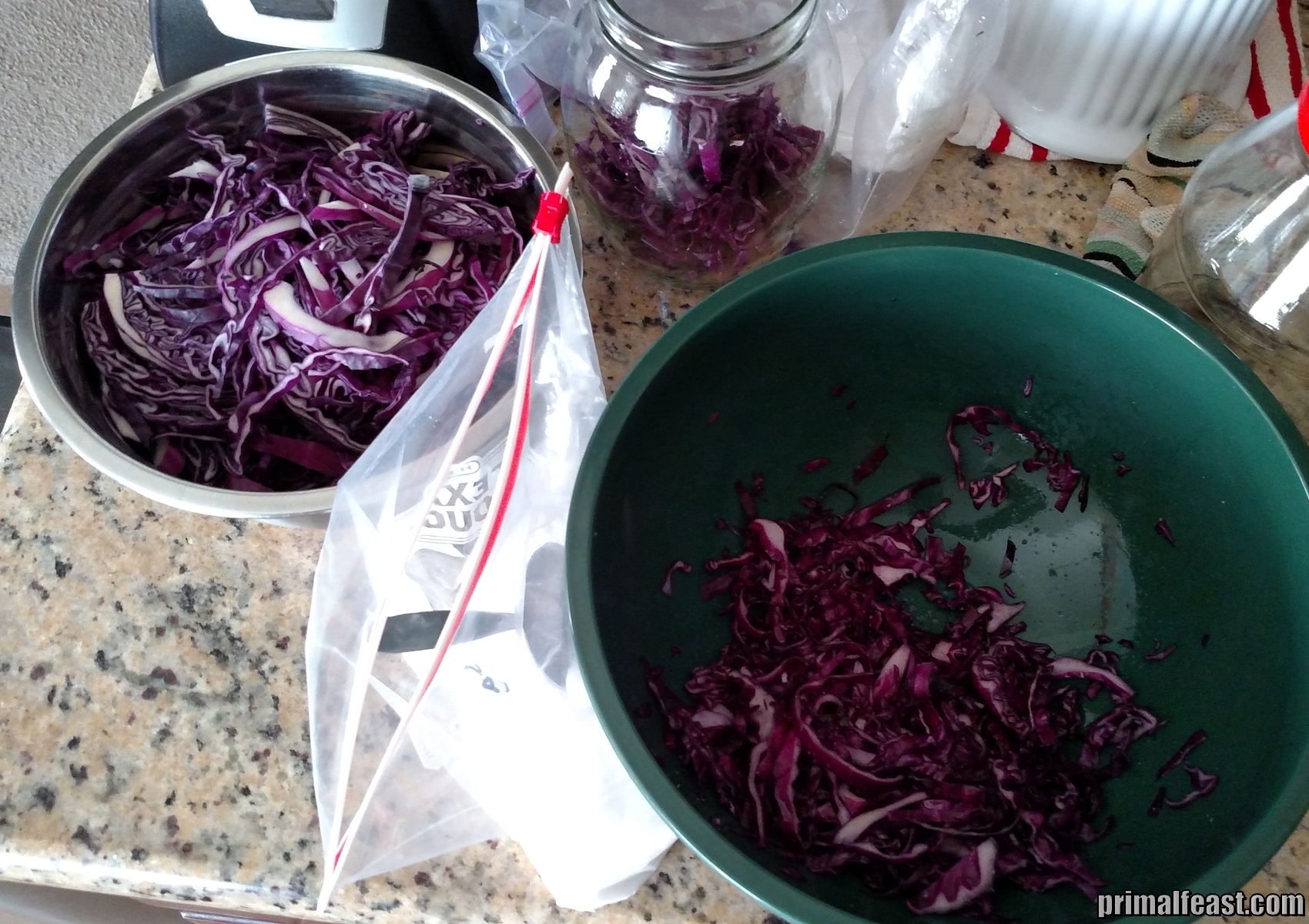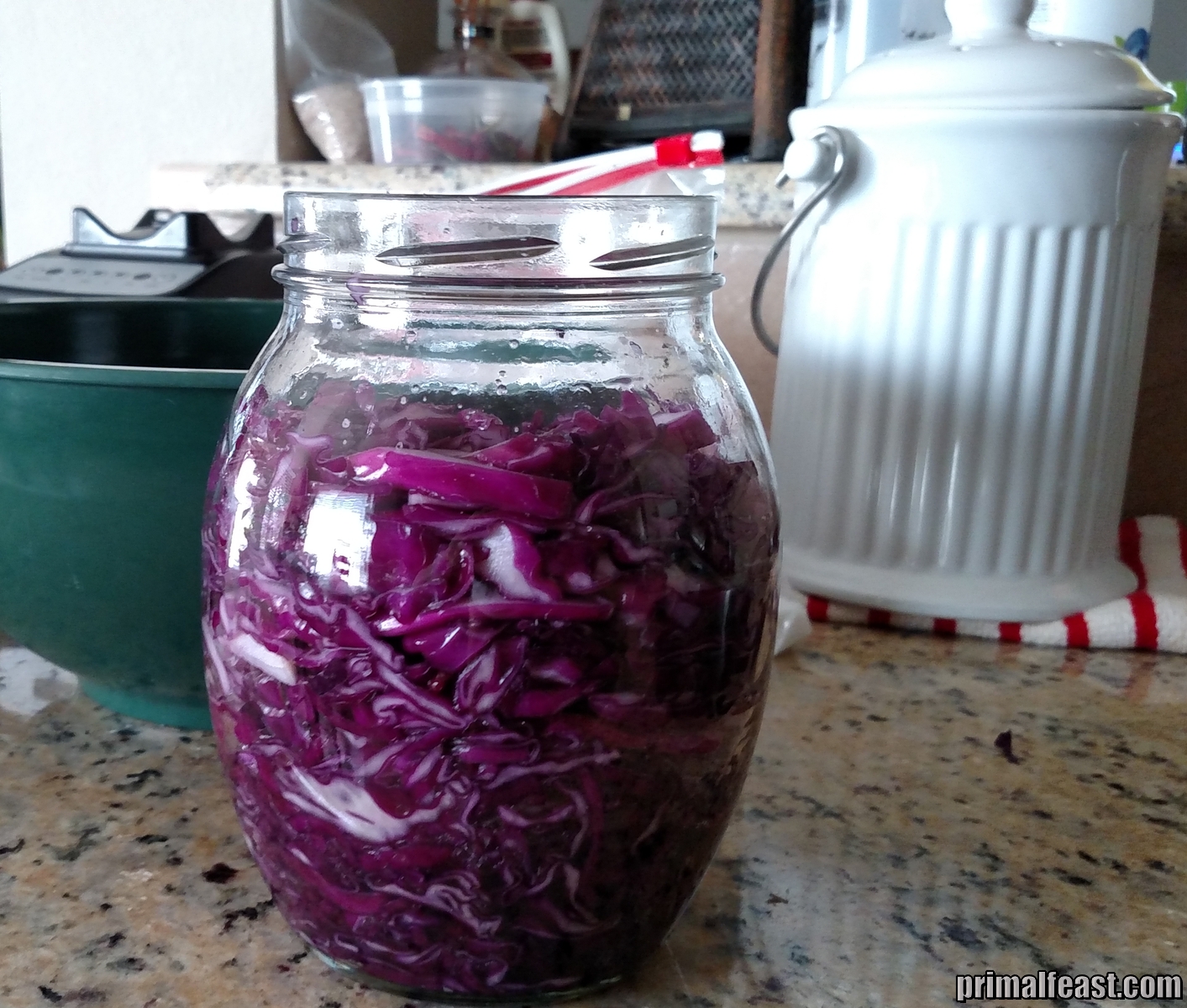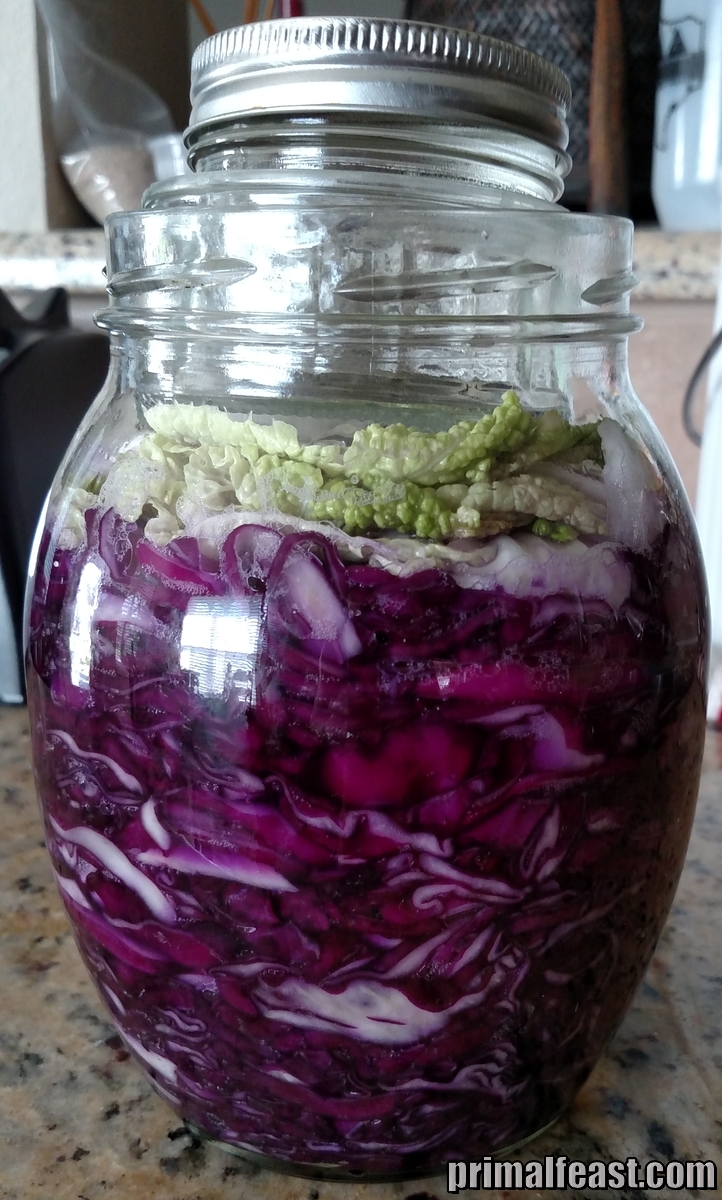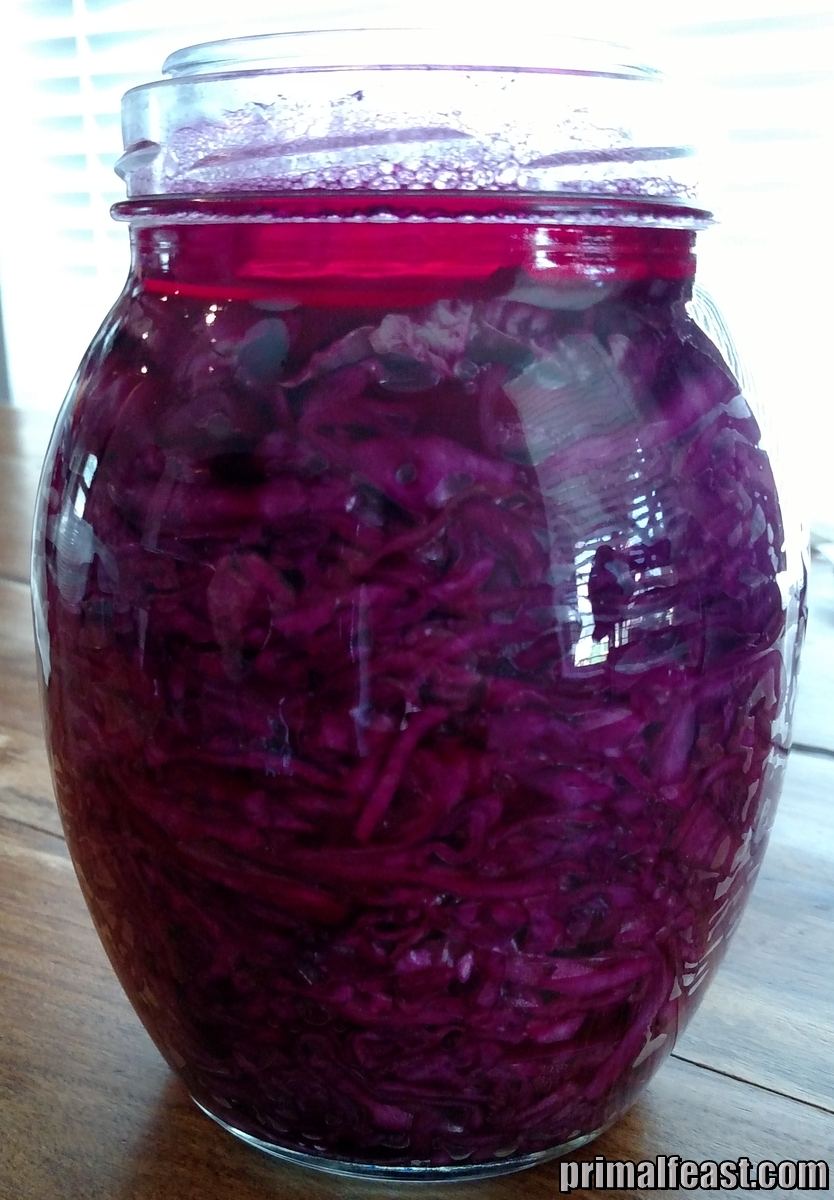



I decided to delve into fermentation to maximize my GI health and flood it with beneficial probiotics. In this case, I went with sauerkraut, which is extremely easy to do at home, and it stands as a fantastic side dish to just about any meal. I started with purple cabbage because that’s what I had on hand, but I’m currently fermenting white cabbage, so I’ll post on that later. To begin, finely cut up the cabbage; toss it in a bowl; mix with a little salt; and either with a wooden spoon or your hands, smother the cabbage with the salt to begin the water extraction process. There is more water in cabbage than you’d think, and the salt brings it out. Once mixed well, pack the cabbage in an appropriately-sized glass jar; cover it with cheese cloth or a towel; and let the fermentation begin. There are fancier fermentation crock kits available as well, but for starters, a glass jar is fine. It just sits out on the counter while the lactobacillus present on the cabbage and in the air gets into the jar and initiates fermentation.
As more water is drawn from the cabbage during the first 24 hours, it’ll likely submerge the cabbage, but if not, add a dash of salt and extra water to completely cover the cabbage. One tip is to cover the shredded cabbage with a layer of cabbage leaves and weigh it down with a smaller jar (of water or marbles) to keep the shredded cabbage totally submerged in the brine. The lactic acid from fermentation keeps the cabbage from growing mold, but sometimes a little mold can grow on pieces not submerged in the brine. If you see some mold – no big deal – simply remove those pieces and keep the process going.
Fermentation is a really neat process and there are many online resources and books to learn more about the history and benefits of fermentation. Yogurt, kimchi, and kombucha are popular fermentation products. And yes, beer too is fermented, but it isn’t in the same category and fails to provide the same probiotic benefits. Sorry…
(If you’re interested in starting your own garden while getting healthy and fit at the same time, simply sign up with PG. You’ll receive primal gardening advice and the knowledge to start and manage your own garden.)
